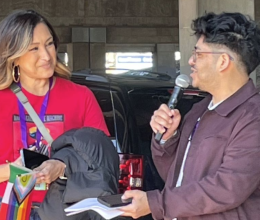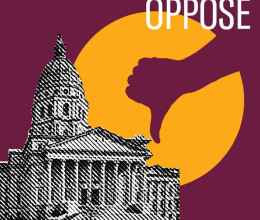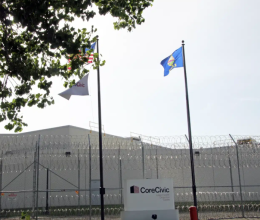
More than dirt; AAPI racism in recent Kansas bill
In 1913, California passed the Alien Land Law, which eroded the ability for immigrants from China, India, Japan, and Korea from owning land.
If that sounds familiar, it’s because Kansas Attorney General Kris Kobach championed a similar bill just a few months ago. And just like in history, this Kansas bill weaponized racism to give the government new, overreaching powers.
The conceit of the bill is restricting people from other countries from purchasing agricultural land in Kansas, ostensibly as a measure of National defense. These bills identify special nationalities for this discriminatory regulation; Chinese people are typically the primary target.
Like many of the extremist movements that find their way into Kansas bills—more than 20 states had similar bills this session—SB 446 would address very few real-world scenarios. Around 3% of U.S. farmland is foreign-owned, with Canada and the Netherlands owning significantly more than China.
Thankfully, Kobach failed spectacularly in gaining support for this discriminatory bill. Civil rights activists were joined by The Kansas Farm Bureau, Livestock Association, Agribusiness Retailers Association, Corn Growing Association and Soybean Association in opposing the bill.
It’s seldom a bill is so bad to get such widespread opposition. The bill was publicly chastised and failed to move towards becoming law. Still, lawmakers rallied at the end of session to push through SB 172, a similarly problematic bill. Governor Kelly vetoed SB 172, preventing it from becoming law.
Sadly, that isn’t the end of the story. Though these bill were defeated, they represent a rash of anti-Asian rhetoric that has scary historical precedent.
We know the California Alien Land Law of 1913 was not the end of the story. A myriad of addition laws targeting Asian immigrants followed, including a 1922 law that would revoke the citizenship of women who married Chinese immigrants.
In 1927, Lum v. Rice found that excluding Chinese Americans from public schools did not violate the 14th Amendment.
In 1937 Washington State expanded their Land Bill to target Japanese Americans. A meme five years later, the U.S. began their Japanese Internment Camps in one of the most shameful episodes in this country's history.
The funny thing about history is, looking back, it can seem so obvious. Clearly internment camps were wrong; today, only the most ardent racists would argue otherwise.
But we seldom recognize that we, each and every moment, are making history. Every decision we make defines our path. And just as those in the history we study justified their mistakes in the moment, so too can we be sedated by fear and ostensible reasonableness to repeat those mistakes.
This month is Asian American and Pacific Islander History Month; as always pertinent history isn’t stuck in the past, but living among us today. Frighteningly, politicians seem resolute in repeating mistakes that led to hate against Asian Americans and the erosion of our civil liberties.
We need to recognize these threats for what they are, but we also must recognize our power. We have a similar power to unite, reject these attempts at division, and instead speak up for the civil liberties of all people.
This AAPI History Month isn’t just about the history behind us; it’s how we use it to write the history that lies ahead. Let’s recognize these reanimated racist attempts at overreach, and make the next chapter one that promotes our rights instead.
Related content


Amid ICE sweeps and rushed legislation, immigration advocates push ...
February 26, 2025
SB 254: Repealing instate tuition for undocumented immigrants...
February 26, 2025
INVESTIGATION: CoreCivic’s Plan to Turn Leavenworth Into an ICE...
February 26, 2025
We Cannot Trust CoreCivic to Keep Anyone Safe — in Leavenworth or...
February 24, 2025
Residents, advocates react to CoreCivic submitting application to...
February 24, 2025
Do Kansas, Missouri residents have to answer questions from ICE? We...
February 21, 2025
'Trepidation and fear': How Topekans are handling changing...
February 16, 2025